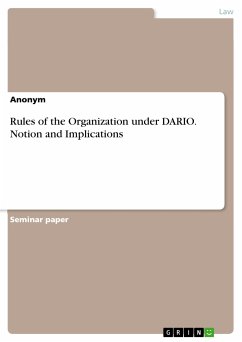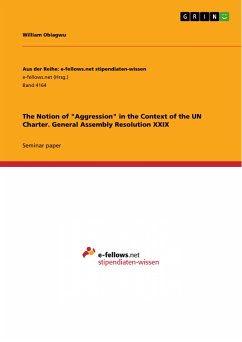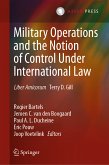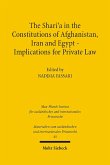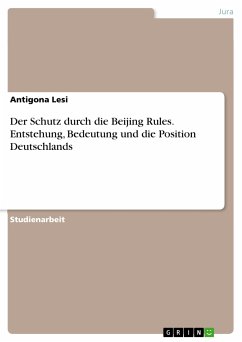Seminar paper from the year 2014 in the subject Law - European and International Law, Intellectual Properties, grade: 4,5, University of Fribourg, language: English, abstract: International organizations are created by a treaty between at least two subjects of international law, mostly States. These confer rights and obligations to international organizations, which they have to fulfil them with their own organs. Two decisive elements materialize during the founding process of an international organization. The first one is of international nature, namely the treaty between the founding States, because they agree on the international plain. Treaties between States are always of international nature, Art. 2 I lit. a VCLT. The second one may be of internal or international nature, or both, namely the constitution instruments of an international organization. Which alternative is the right one remains unclear and thus is the subject of this paper. The latter derives from the former, whereby they both form the constituent instruments of international organizations. Since the International Law Commission (ILC) published the Draft Articles on the responsibility of international organizations (DARIO), containing rules when an international organization is responsible for a committed international wrongful act by them, the constituent instruments of international organizations are also referred to as the "rules of the organization". DARIO is the daughter of Responsibility of States for Internationally Wrongful Acts (ARSIWA), with the same abandonment, namely to make international organizations responsible for international wrongful acts committed by international organizations, given that ARSIWA only addresses States. This paper will be divided into three parts. While the first and third parts are auxiliary sections to introduce the topic and present the results of this paper, the second part is the main one. Accordingly, it is divided into two subparts, namely the notion and implications. In the first subpart, the problem of the term "rules of the organization" will be discussed, while the second subpart will highlight what could happen if the constituent instruments, another expression for the term "rules of the organization", of international organizations are qualified as natural rules, international rules or rules that are of both natures.
Dieser Download kann aus rechtlichen Gründen nur mit Rechnungsadresse in A, B, BG, CY, CZ, D, DK, EW, E, FIN, F, GR, HR, H, IRL, I, LT, L, LR, M, NL, PL, P, R, S, SLO, SK ausgeliefert werden.

